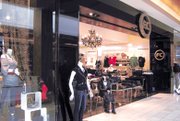Burgeoning Teen Retail Chain Shutting Doors After Tragic Accident
German entrepreneur Rainer Schulz was an old hand at setting up fast-fashion stores across Europe under such nameplates as Forever 18 and Colloseum.
Three years ago, the veteran retailer ventured across the ocean to expand his clothing-store empire to Southern California. In October 2010, he opened his first My Fashion Club store at the Westfield Topanga shopping center in Canoga Park, Calif. Three more California stores—in Glendale, Northridge and Bakersfield—followed.
But all four stores are closing after Schulz, 52, died when the Cessna 750 Citation X corporate jet he was piloting crashed on March 1 in Egelsbach, Germany, south of Frankfurt. He was en route from Linz, Austria. Four other people died in the crash, including Susanne Jaschke, who was in charge of the retailer’s European expansion.
The future of the company’s U.S. operations remains cloudy. In the German trade publication TextilWirtschaft (Textile Economy), an article published March 8 noted that Schulz’s wife, Silke Schulz, had been named managing director.
Calls to Silke Schulz, who, with her husband, bought a house in Malibu, Calif., a few years ago, went unanswered, as did calls to the company’s Los Angeles office.
Apparel-industry insiders noted that Silke Schulz has been busy taking care of her 2-year-old son and prematurely born triplets she had a few months ago. One remains in neonatal intensive care in the Las Vegas hospital where they were born.
But the store managers at the various mall-centric outlets that cater to the 16- to 35-year-old customer said they were informed they are shuttering their doors because of Schulz’s death.
“We are going out of business,” said Marlene Marquez, the manager of the Topanga store, which closed on April 15. She and her colleagues were packing up merchandise to send to a warehouse. “We’re sad.”
Amanda Whaley, manager of the Bakersfield store, open since the beginning of March, said the store had been popular. She said it was a shame the store had to close so soon after opening.
Mary Rodriguez, manager of the My Fashion Club at the Northridge Fashion Center, said a representative from the home office went to each store and informed them of the decision to shut the retail outlets. “They are closing them one by one,” she said.
Reiner and his wife were always very low-key about their retail expansion. After their first store opened in October 2010, they declined an interview to outline their expansion plans or their merchandising model. There was very little advertising except for Internet sites and Facebook.
But they were determined to make their mark on the United States. Their first U.S. corporate office was located in the historic Gerry Building in the heart of the Los Angeles Fashion District. They took up three showroom spaces on the sixth floor with an office decorated with an overabundance of white furniture and white curtains that went well with the spare concrete floors and white ceilings.
Later, they moved to a larger space on Long Beach Avenue off Washington Boulevard, several blocks southeast of the fashion district.
Schulz started his retail empire in Berlin in the mid-1990s. He called it United Fashion Brands. The company has more than 150 stores in Germany, Russia, Poland and Austria.
Schulz thrived on a fast-fashion concept where merchandise is inexpensive and sourced in Asia. The company has a large office in Hong Kong.
At the My Fashion Club stores in the United States, the look of the retail outlets was clean with a few frilly touches, such as a looming black chandelier in the middle of the store and black marble columns at the entrance.
Merchandise was extremely cheap but fashionable. Skinny-leg jeans sold for $18, and knee-high boots went for $27. Strapless evening dresses carried a $50 price tag. Dresses and blouses came in bright prints and were on trend.
Schulz’s merchandising concept was similar to the way Forever 21 operates. The two were involved in litigation that was close to being resolved, sources said.
Even though Schulz’s death is hastening the stores’ closures, they might not have made it anyway. In a lawsuit filed March 29 in U.S. District Court in Los Angeles, Asia Today in Hong Kong is suing the retailer for $4.1 million. Most of that is a $3.9 million loan, and the rest is for merchandise shipped but not paid for. Rainer Schulz was a partner in Asia Today, a sourcing company that manufactured his merchandise.
Court papers show that United Fashion Brands’ stores in the United States had an $841,953 loss this year, and the company had a negative net worth of $2.3 million. A receiver has been appointed to handle the dissolution of the stores and the U.S. arm of the company.
“One store has been liquidated, and the three other stores will be shut down as soon as the inventory liquidation concludes,” said Steven Spector, Asia Today’s attorney.
He noted that only United Fashion Brands’ stores in the United States— not the European stores—are closing.
Shuttering the stores is unfortunate because the retail chain was just getting started. United Fashion Brands had made commitments to open stores in San Jose and Visalia, Calif., and Albuquerque, N.M., through leases signed with mall operator General Growth Partners.
“It is a highly competitive business, and you have to have a niche that you can really thrive in,” said Ken Perkins of Retail Metrics, a retail-consulting company. “I suppose they could always start it up at another time.”
Perkins also noted you have to have a succession plan in place when you are running a business. “You can never predict something like this,” he said.






















